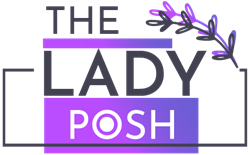Venturing into the realm of public health education marks a pivotal step in impacting community health positively. The field offers a variety of programs and career trajectories, presenting prospective public health professionals with an array of choices and obstacles. The education one acquires not only hones their expertise but also opens doors to myriad opportunities in this ever-evolving sector. This guide offers essential strategies to navigate and excel in this transformative educational path.
Selecting an Apt Public Health Degree Program Aligned with Career Aspirations
Choosing an appropriate public health degree program is critical for laying the groundwork for your future career. Research programs that resonate with your interests and career goals, ensuring they encompass a broad range of topics you wish to explore. Look for programs like the public health degree bachelor’s that offer a robust academic foundation, yet are flexible for working students.
The accreditation status of a program is vital as it signifies its quality and industry recognition. Also, seek out programs that offer specializations aligning with your long-term career objectives, be it in epidemiology, environmental health, or health policy.
The expertise of the faculty and the program’s reputation play a significant role in your educational experience. Engage with admissions counselors and faculty to understand the program’s strengths and student support mechanisms. Utilize resources such as college counselors near me for tailored advice in your decision-making.
Consider the geographical location of the institution and local opportunities for internships or partnerships, as certain areas may provide greater exposure to specific public health challenges or access to leading research facilities, enhancing your practical learning experience.
Integrating Coursework and Practical Application in Public Health Studies
A comprehensive public health education encompasses both theoretical and practical aspects. Aim for a program that balances academic learning with opportunities for fieldwork. Such a blend is crucial for developing a holistic skill set.
Internships and cooperative education programs offer real-world insights into public health challenges, enriching your understanding and enhancing your resume and professional network.
Effective time management is key in juggling intensive coursework with internships or part-time jobs. A structured schedule and prioritization are essential for maintaining academic excellence and accumulating field experience.
Networking and Fostering Professional Connections in Public Health
Networking is a cornerstone of the public health educational journey. It provides insights into various career paths and potential job openings post-graduation. Actively participate in public health events, join student organizations, and engage in community services. These activities can lead to mentorships and interactions with industry experts.
Your digital footprint, especially on platforms like LinkedIn, serves as a networking tool, connecting you with peers, alumni, and potential employers, and keeping you informed about job openings and industry developments.
Keeping Up with Emerging Trends and Research in Public Health
Public health is a dynamic field, constantly influenced by new research and trends. Staying informed is crucial for aspiring change-makers. Utilize scholarly journals, news sources, and professional organizations for the latest updates.
While academic courses cover contemporary issues, independent research and self-study will deepen your understanding. Engage with faculty and undertake research projects, which could lead to novel contributions in the field.
Transitioning into the Public Health Workforce After Graduation
As you near the completion of your degree, focus on preparing for the competitive public health job market. Utilize your institution’s career development resources.
Refine your resume and cover letters to showcase your public health skills and experiences. Practice interview techniques and craft a narrative that effectively conveys your dedication to public health and the value you bring to potential employers.
In summary, earning a degree in public health is a journey towards becoming a key player in global health. Through informed educational choices, practical experience, networking, staying abreast of industry trends, and thorough career preparation, you are poised to make a significant impact in the public health domain.












